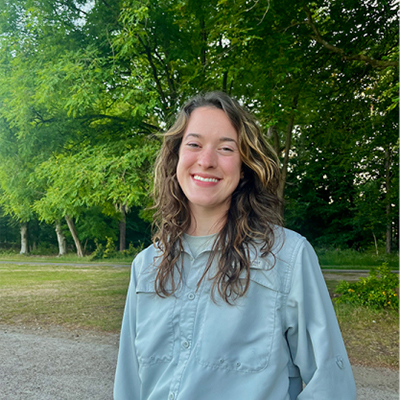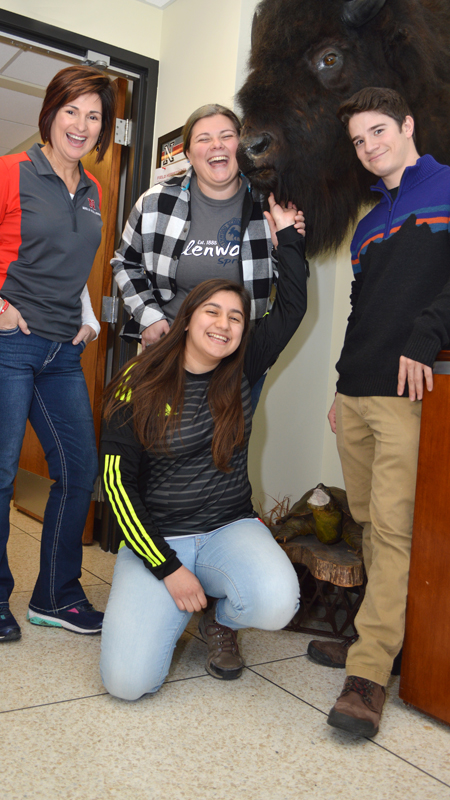




Environmental Science
The vision: A healthy environment supports our future
An Environmental Science Major at the University of Nebraska allows you to study and help solve the complex environmental problems facing Earth today. This major is perfect for students passionate about the environment, climate, soils, water, and the spatial relationships of these issues.
Environmental Science provides a comprehensive curriculum with hands-on field experience and spatial science techniques, equipping students with knowledge and skills to make a meaningful impact on our planet's future. Work with our top-notch faculty on research projects! Learn to use GIS and remote sensing tools! You’ll find many experiential learning opportunities during your time at the School of Natural Resources!
Study Environmental Science
Apply Now Come Visit
Environmental Science Options
Each environmental science student will choose at least one emphasis area to focus in. These emphasis areas help students specialize their course work based on individual career goals.
Climate Science
This option will concentrate on exploring the complexities of Earth’s climate system to understand climate related issues and their interrelationships with natural resources and ecosystem management. Key topics will include natural hazard management, climate change, climate variability, and changing frequency and severity of extreme climate events.
Course Examples: Applied Climatology, Climate & Society, Hydroclimatology, Microclimate: The Biological Environment
Soil Science
This option provides students an understanding of soil as a natural resource and critical component to all terrestrial ecosystems. By understanding soil properties, soil health, and ecological processes, student develop strategies essential to maintaining environmental balance.
Course Examples: Soil Health & Environment, Soil Microbiology, Soils, Water & Environmental Chemistry, Soil Conservation & Watershed Management
Spatial Science
This option emphasizes the application of geographic information systems and spatial analysis, enabling students to address environmental issues. Spatial science enables the analysis and visualization of complex environmental data, helping to identify trends, patterns, and relationships in ecosystems while helping students make informed decisions in environmental management.
Course Examples: Applications of Remote Sensing, GIS for Agriculture and Natural Resources, Introduction to Landscape Ecology, Field Techniques in Remote Sensing
Water Science
This option emphasizes the critical role of water systems in supporting ecosystems and overall environmental health. Students will study water quality, management practices, aquatic ecology, and limnology, providing solutions to water challenges.
Course Examples: Stream and River Ecology, Limnology, Wetlands, Hydrology
The future awaits
Our graduates go on to become leaders in their field. With a degree in environmental science, your job title could be:
- Environmental Scientist
- Geologist
- Hydrogeologist
- Private Industry Consultant
We want to help you find your dream career. That’s why we utilize our job board, Handshake and send out weekly job update emails.
OFTEN PAIRED WITH THESE MAJORS or MINORS
Go beyond the classroom with these opportunities

Meet Nick
"After I graduate, I hope to be working in an environment or position where I can help to improve the environments and ecosystems that wildlife lives in after (the land) has been altered or changed by human activities to help restore it to its natural setting."

Meet Isabella
"I want to just be out in nature getting my hands dirty and helping out as much as I can! In addition, my hope is to get more involved and passionate about nature."

Meet Callie
"I think diversity and inclusion are some of the most significant strengths that CASNR brings to the table. During my four years at UNL, I have always felt welcome and a part of the community. Creating an environment that is so inviting to individuals from various backgrounds leads to our success. Exposure to cultural differences is a huge part of college. "
Want more information?
Contact TBD
Undergraduate Recruiter
- Address
-
School of Natural Resources
102a South Hardin Hall
3310 Holdredge Street
Lincoln, NE 68583-0981 US - Phone
- 402-472-7471
- snrrecruiting@unl.edu
- snrrecruiting@unl.edu


















